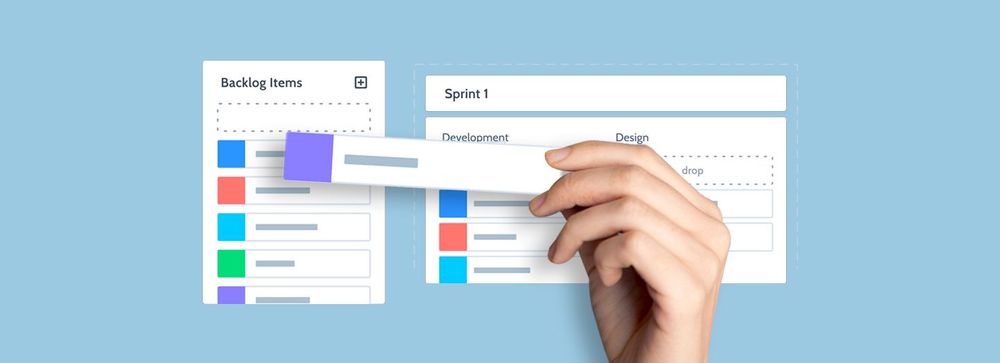According to the Scrum Guides from Scrum.org, the Product Owner (PO) is the member of the Agile team “responsible for maximizing the value of the product resulting from work of the Development Team”. Following this definition, the PO is basically the team member that defines Stories and prioritizes the Product Backlog to streamline the execution of project priorities while also maintaining the conceptual and technical integrity of the components for the rest of the team.
In simpler words, the Product Owner is responsible for assuring that the team provides value to not only the project but also the business for which the project is being completed.
Therefore, the PO is a key team member since he or she does not only represent the internal side of the team, but also the external one. This means that the Product Owner must truly understand and support not only the needs of all the users that are taking part in the business side but also the needs and functioning processes of the Scrum Team itself.
Something that is absolutely worth mentioning is that the Product Owner has the responsibility of developing visibility, not only for what needs to be developed but also for when and within what budget it has to be developed. This is the so-called Tactical Project Management: a process in which the Product Owner has to focus on achieving Time-to-Market goals in order to have the project ready for the market when the client needs it. This means that the PO is responsible for evaluating the best market opportunity to release the product at the moment that maximizes its value for the client on a construction and market presence level.
But, how does the Product Owner achieves this while still balancing its other functions and responsibilities?
In a nutshell, the PO has to have the capacity of constituting a development team with the right amount of people to optimize all of the operations functions in order to guarantee that the project is ready and successful within the right time. However, as the development team grows bigger so does the costs and budget of the project, which is also the Product Owner’s responsibility to analyze and determine.
Therefore, the PO must have visibility of the project budget as well because it is their responsibility to verify the risks and ensure the feasibility of carrying out the project in the time that is stipulated with the established budget on each Sprint.
Check out our article on “The Sprint: How To Ace The Sprint Planning” to learn how to deliver high-quality #ProjectManagement results.
Taking all this into consideration, and according to Scrum Guides, the PO fulfills the following duties:
- Expressing Product Backlog items.
- Ordering the items in the Product Backlog to best achieve goals and missions.
- Optimizing the value of the work the Development Team performs.
- Ensuring that the Product Backlog is visible, transparent, and clear to all, and shows what the Scrum Team will work on next.
- Ensuring the Development Team understands items in the Product Backlog to the level needed.
It is fundamental to know that the Product Owner may do the above work or have the Development Team actually do it; however, the PO will always remain accountable for the results of said job. However, as said before, the Product Owner has the utmost responsibility for being able to understand and manage the following tasks:
- Understanding the “What”: What has to be developed.
- Understanding the “When”: When does the client need it and what the best time to release the product in the market.
- Understanding the “Within”: Within what budget does the project needs to be developed and released.
If you want to read more in-depth about the Scrum process, check our “Agile 101: An Intro to Agile Software Development” article here.
Because of all these responsibilities, the qualities of a Product Owner are crucial for the Agile development project to be successful. There are many features that a good PO should have, but the most important attributes are the following:
- Vision: The PO must have a solid vision of what to deliver to stakeholders. This requires knowledge of business and market conditions to be able to weigh risks and opportunities.
- MVP mindset: The PO must focus on delivering the most valuable functionality instead of delivering “more” than they should. Studies indicate that more than 65% of a product’s features are never used, so having an MVP mindset is very important.
- Understanding the competition: In a market where new products are constantly being launched, POs must keep their eyes and ears on the ground to detect opportunities and make quick decisions that are vital to the success of a project.
- Communicator and collaborator: The Product Owner must communicate with different profiles in different areas. Being a good communicator of the vision, and collaborator to build the path are basic skills that every aspiring Product Owner should have.
- Dealmaker: Negotiation skills are especially necessary to avoid delays in making decisions. The collaboration of different parties with different interests makes negotiation essential at critical moments in the project.
- Empowerment: Having the final say on the product being developed is critical for a Scrum project to be successful. Without this authority, the Development Team should wait for “the true authority” to make decisions.
- Always available: The Product Owner must always be available to the Development Team. In general, POs have tasks that are not really Scrum related, so finding a balance between these tasks and the responsibilities of a product owner is vital.
“One of the most important parts of the Tactical Project Management that the Product Owner must focus on is the Time-to-Market which basically means delivering the product when the client needs it. This means that sometimes it is necessary to develop a business strategy to find the best market opportunity so that the product maximizes, not only its development value but also its presence on the market itself”.
Sergio Moreau, Teravision Technologies’ Product Owner.
The Product Owner role is extremely important in a software development project, especially when working remotely with an in-house team, and the position highly requires an individual with certain skills and traits, including availability, business savvy, and communication skills.
As mentioned before, the POs need to be available to their team. The best product owners show commitment by doing whatever is necessary to build the best product possible – and that means being actively engaged with their teams. Business savvy is also important for the agile product owner because he or she is the decision-maker regarding what features the product will have, and because of this the PO should understand the market, the customer, and the business in order to make sound decisions. Additionally, communication is a large part of the product owner’s responsibilities. The product owner role requires working closely with key stakeholders throughout the organization and beyond, so he or she must be able to communicate different messages to different people about the project at any given time.
In conclusion, we can say that the Product Owner, even though it represents the desires and interests of a committee, is the key single responsible for maximizing the value of the product resulting from the work of the Development Team. Likewise, it is fundamental to comprehend that the only way the PO can succeed if their decisions are respected for the entire organization and that no one should order the Development Team to work from a different set of requirements, but the Product Owner itself.
Contact Us. Learn how to scope your MVP Development Project with us and our Product Owners.



